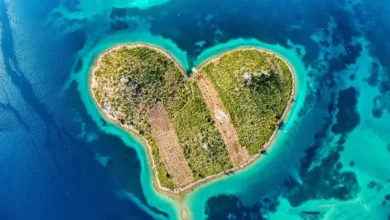How an ancient society thrived in the Sahara without water

The Garamantes, one of the most remarkable ancient civilizations in human history. Located in the Sahara desert, an environment typically considered inhospitable and untenable, the Garamantes survived and even thrived for close to a millennium.
Without access to water supplies from typical sources such as flowing rivers. They were an urbanized society that established themselves in the desert, even though they had no natural security or resources to depend on.

(Shutterstock)
The Garamantes were known to the Romans as the Kingdom of Sands. They used slaves from sub-Saharan Africa to build tunnels and harvest groundwater.
They achieved a standard of living that was unmatched in the region. However, while luck was on their side for a time, this did not last forever. The recent hydrological analysis shows that the Garamantes were successful because of the underground sandstone aquifer that they tapped into. It was one of the largest in the world.
The aquifer sustained towns and settlements in an arid area, housing farmers, cattle herders, engineers, merchants, and slaves. The Garamantes dug 750km of tunnels called foggaras by forcing slaves, following the technique from Persia.
However, unlike Persia, aquifers in the Sahara are not recharged by snow melt, making it an unlikely strategy. Nonetheless, the unique flow system in their aquifer moved water from deep underground to the base of a hill, supporting over 500 foggaras, some more than 4.5km long. Due to this system, the Garamantes irrigated crops for close to a century, recharging the system even with little rainfall.

(Shutterstock)
Inevitably, the water level of the aquifer dropped below the foggaras, and reaching it once again would have required many more tunnels to be built and many more slaves to do the building.
With food and water shortages already taking hold, trading for slaves or acquiring them through warfare would have become ever more difficult. Eventually, after all those years in the Sahara, the Garamantes society fell due to factors including climate change, overconsumption, overuse of the environment, and poor ecological practices.
The lesson of the Garamantes’ fate in the Sahara all those years ago may serve as a cautionary tale for our present times. Without exercising due diligence, societies can easily repeat the very same mistakes as their predecessors, leading to their dismal end. Hence, we must act wisely and take the necessary measures to avoid meeting a similar fate by making the right choices, not the wrong ones.










